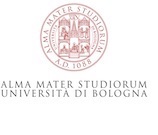|
 Ranjana Khanna is Professor of English, Women's Studies, and the Literature Program at Duke University. She works on Anglo- and Francophone Postcolonial theory and literature, and Film, Psychoanalysis, and Feminist theory. She has published widely on transnational feminism, psychoanalysis, and postcolonial and feminist theory, literature, and film. She is the author of Dark Continents: Psychoanalysis and Colonialism (Duke University Press, 2003) and Algeria Cuts: Women and Representation 1830 to the present (Stanford University Press, 2008.) She has published in journals like Differences, Signs, Third Text, Diacritics, Screen, Art History, positions, SAQ, Feminist Theory, and Public Culture. Her current book manuscripts in progress are called: Asylum: The Concept and the Practice and Technologies of Unbelonging. Ranjana Khanna is Professor of English, Women's Studies, and the Literature Program at Duke University. She works on Anglo- and Francophone Postcolonial theory and literature, and Film, Psychoanalysis, and Feminist theory. She has published widely on transnational feminism, psychoanalysis, and postcolonial and feminist theory, literature, and film. She is the author of Dark Continents: Psychoanalysis and Colonialism (Duke University Press, 2003) and Algeria Cuts: Women and Representation 1830 to the present (Stanford University Press, 2008.) She has published in journals like Differences, Signs, Third Text, Diacritics, Screen, Art History, positions, SAQ, Feminist Theory, and Public Culture. Her current book manuscripts in progress are called: Asylum: The Concept and the Practice and Technologies of Unbelonging.
|
|
 Sarah Nuttall is the Director of WiSER since January 2013, where she was a prominent Senior Researcher from 2000 until 2010. Born in South Africa and educated at the Universities of (then) Natal and Cape Town, Sarah won a prestigious Rhodes Scholarship to read for a D.Phil. at Oxford. A literary scholar by training, Sarah’s varied research interests and prolific publication record have established her as a leading cultural commentator and critic as well as one of the leading scholars of her generation. She has lectured at the University of Stellenbosch and, for the past five years, has been a Visiting Professor at Yale University and Duke University. Sarah has edited several path-breaking books; her influential monograph, Entanglement: Literary and Cultural Reflections on Post-apartheid, explores mutuality, transgression and embodiment in contemporary South Africa. Sarah has published in various journals including in Cultural Studies, Interventions: International Journal of Postcolonial Studies, Journal of South African Studies, Public Culture, Third Text and Social Dynamics. She is a member of the editorial boards of Journal of Southern African Studies, Humanity, Cultural Studies, Social Dynamics, English Studies in Africa, and English Academy Review. Sarah Nuttall is the Director of WiSER since January 2013, where she was a prominent Senior Researcher from 2000 until 2010. Born in South Africa and educated at the Universities of (then) Natal and Cape Town, Sarah won a prestigious Rhodes Scholarship to read for a D.Phil. at Oxford. A literary scholar by training, Sarah’s varied research interests and prolific publication record have established her as a leading cultural commentator and critic as well as one of the leading scholars of her generation. She has lectured at the University of Stellenbosch and, for the past five years, has been a Visiting Professor at Yale University and Duke University. Sarah has edited several path-breaking books; her influential monograph, Entanglement: Literary and Cultural Reflections on Post-apartheid, explores mutuality, transgression and embodiment in contemporary South Africa. Sarah has published in various journals including in Cultural Studies, Interventions: International Journal of Postcolonial Studies, Journal of South African Studies, Public Culture, Third Text and Social Dynamics. She is a member of the editorial boards of Journal of Southern African Studies, Humanity, Cultural Studies, Social Dynamics, English Studies in Africa, and English Academy Review.
|





